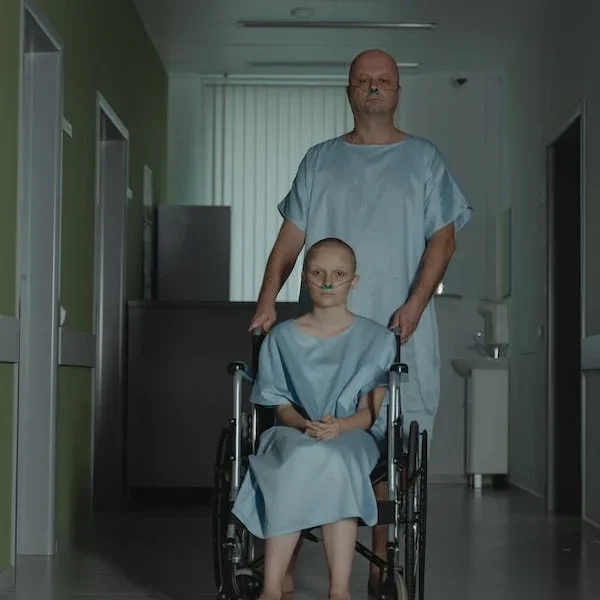Cancer patients need nutritional support while undergoing treatment, recovering from surgery, and managing side effects. A healthy diet can help the body maintain its immune system, keep up its strength, control its weight, and generally feel better. The following are some broad recommendations for cancer patients’ nutritional support:
- Encourage a diet that is well-balanced and rich in a range of fruits, vegetables, whole grains, lean meats, and healthy fats. This offers vital nutrients required for general well-being and recuperation.
- Sufficient Calories: The body may require more energy due to cancer and its therapies. It’s critical that patients eat enough calories to sustain their energy levels and stop weight loss. Nuts, avocados, and nut butters are high-calorie, high-nutrient meals that can help satisfy calorie requirements.
- Consumption of Protein: Protein is necessary for immunological response and tissue repair. Cancer patients should be encouraged to eat a diet high in protein-rich foods such dairy, eggs, fish, chicken, legumes, and vegetables.
- Drink plenty of water. This is particularly crucial after receiving cancer therapy. Patients should be urged to stay hydrated throughout the day by drinking lots of water. Fruit juices, herbal teas, and stews are additional sources of water.
- Small, Regular Meals: Patients who are suffering nausea, loss of appetite, or other digestive problems may find it simpler to eat smaller, more often meals throughout the day.
- Supplementation: To meet their dietary demands, cancer patients occasionally may need to take nutritional supplements. This could include specific dietary formulae, vitamins, and minerals. Nonetheless, it’s crucial to speak with a doctor before beginning any supplementation.
- Handling Side Effects: Appetite and digestion may be negatively impacted by some cancer therapies. For instance, frequent adverse effects include nausea, vomiting, diarrhea, and mouth sores. Urge patients to collaborate with their medical team to properly manage these side effects, which can entail making dietary or pharmaceutical adjustments.
- Customized Approach: Depending on the kind of cancer, treatment stage, general health, and individual preferences, dietary requirements might differ significantly between cancer patients. A certified dietitian can offer tailored advice depending on each person’s needs and goals.
- Emotional Support: Cancer patients may find it difficult to eat healthfully on a physical and emotional level. Encourage and support patients in finding methods to enjoy meals and mealtimes in spite of whatever obstacles they may be facing.
- Long-Term Health: After treatment concludes, encourage cancer survivors to maintain a high priority on nutrition and a good diet. Reducing the chance of cancer recurrence and promoting long-term health can be achieved with a balanced diet and frequent exercise.
- Fiber-Rich Foods: Consuming foods high in fibre, such as fruits, vegetables, whole grains, and legumes, helps relieve constipation, a common side effect of some cancer therapies and drugs, and improve gut health.
- Healthy Fats: Including foods high in healthy fats, such nuts, seeds, avocados, and olive oil, can help sustain energy levels and supply important fatty acids, particularly when hunger is suppressed.
- Restricting Processed Foods: Cancer patients should be advised to reduce their consumption of high-sugar, processed foods, which have less nutritional value and may aggravate inflammation and weakened immune systems.
- Mindful Eating: Cancer patients can regain a sense of connection with their body and have greater overall meal pleasure by implementing mindful eating practices, such as savouring food, paying attention to hunger and fullness cues, and eating slowly.
- Dietary limitations: Dietary limitations may be necessary for a brief or long-term part of certain cancer treatments. For instance, patients receiving radiation therapy to the head and neck may need to stay away from meals that are hot or acidic because they might cause irritation to the throat and mouth. To reduce discomfort and promote recovery, advice on healthy food selections and cooking techniques is crucial.
- Nutrition Education: Provide cancer patients with information and tools to help them make educated food decisions and develop good eating practices. This could include recipe ideas, cooking lessons, and instructional materials catered to their individual dietary requirements and preferences.
- Collaborative Care: To guarantee complete and well-coordinated nutritional support across the cancer care continuum, promote teamwork between healthcare practitioners, including dietitians, nurses, oncologists, and other team members.
- Supportive Supplements: Certain dietary supplements, such as probiotics, omega-3 fatty acids, and herbal supplements, may provide supportive advantages for controlling certain symptoms or enhancing general well-being in addition to normal nutritional supplements. But before adding supplements, it’s important to exercise caution and speak with medical professionals because they could cause unexpected adverse effects or interfere with prescription drugs.
- Cultural and Social Considerations: Keep in mind that dietary behaviours and tastes may be influenced by cultural and social influences. Respect patients’ cultural origins and ideas about food and nutrition, and collaborate with them to find dietary regimens that suit their requirements and preferences while still being culturally appropriate.
- Frequent Monitoring and Follow-Up: Keep a close eye on your nutritional status and modify your interventions in response to changes in your appetite, weight, dietary tolerance, and any adverse effects from your medication. Patients should get routine follow-ups to evaluate their progress, discuss any issues, and offer continuing assistance in sustaining their ideal diet and general health.
Advantages of Nutritional support for cancer patients
Supporting cancer patients nutritionally has various advantages:
- Better Tolerance of Treatment: Eating a healthy diet can make patients more tolerant of cancer therapies including radiation, chemotherapy, and surgery. Sufficient consumption of nutrients aids in the body’s capacity to mend wounds, preserve immunological response, and recuperate from therapeutic side effects.
- Enhanced Recuperation and Healing: Following surgery or other invasive operations, nutritional supplementation is essential to the healing process. A nutritious, well-balanced diet lowers the risk of infection, aids in the healing of wounds, and helps general recuperation.
- Maintained Strength and Energy Levels: Patients may find it difficult to sustain their strength and energy due to the weariness and weakness that might result from cancer and its therapies. Eating a healthy diet gives the body the energy it needs to promote physical activity, lessen weariness, and enhance general health and endurance.
- Optimized Nutrient Status: The body’s capacity to absorb and use nutrients efficiently can be impacted by cancer and its treatments. The goal of nutritional support is to ensure that the body gets the fundamental building blocks required for immune system function, cellular repair, and general health by preventing deficiencies and optimizing nutrient intake.
- Preserved Lean Body Mass: Weight loss and weakness in the muscles are common in cancer patients, and these conditions can have an adverse effect on general health and quality of life. Sufficient consumption of protein and calories can maintain lean body mass, avoid unintentional weight loss, and promote strength, mobility, and functional independence.
- Enhanced Immune Function: The body’s protection against infection and cancer depends heavily on a robust immune system, which is sustained by proper diet. Essential vitamins, minerals, and antioxidants that are provided by nutrition boost immune function and improve the body’s resistance to disease and infection.
- Increased Quality of Life: Patients’ physical, mental, and social well-being can all be adversely affected by cancer and its therapies, which can have a substantial influence on their quality of life. Throughout the cancer journey, nutritional support promotes increased comfort, enjoyment, and overall quality of life by addressing dietary problems and side effects.
- Decreased Treatment Interruptions and difficulties: Undernourishment and malnourishment can make treatment more likely to be interrupted, delayed, or cause difficulties. Healthcare professionals can minimize treatment-related interruptions and improve treatment results for cancer patients by offering prompt and thorough nutritional support.
- Empowerment and support: By providing nutritional assistance, cancer patients are able to actively participate in their own care and healing. Healthcare providers empower patients to make knowledgeable food choices, effectively manage treatment-related side effects, and confidently and resiliently negotiate dietary problems by providing individualized assistance, information, and tools.
Long-Term Health and Survivorship: The cornerstone for long-term health and survivorship is the development of good eating and nutritional patterns both during and after cancer treatment. Nutritional support helps people stay well overall, lowers their chance of developing cancer again, and helps them transition from their cancer journey to a balanced, healthy living afterward.


